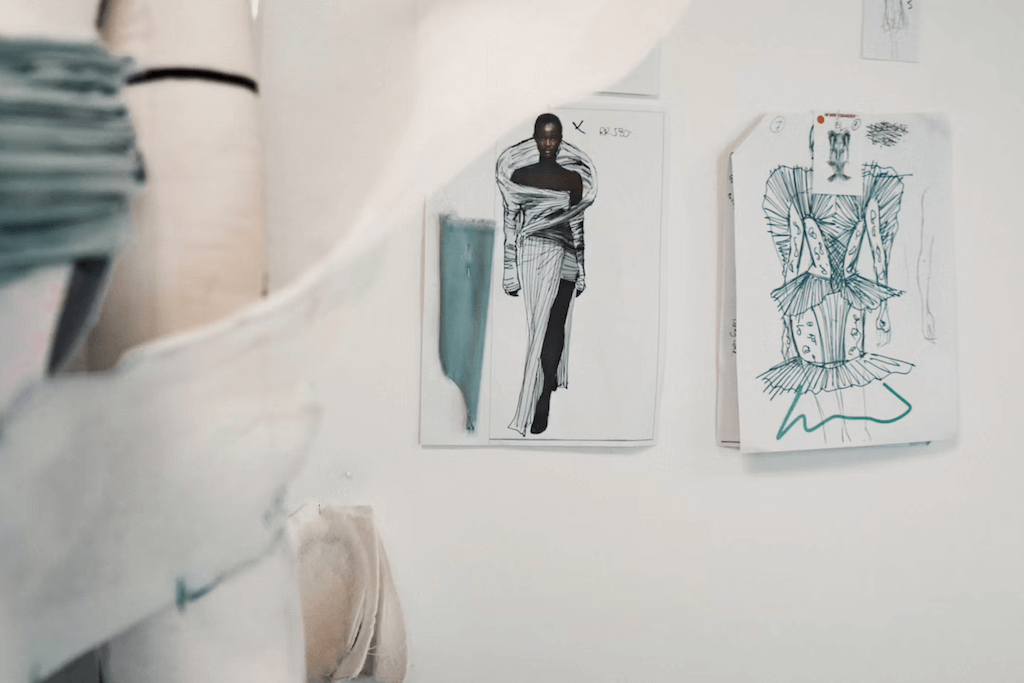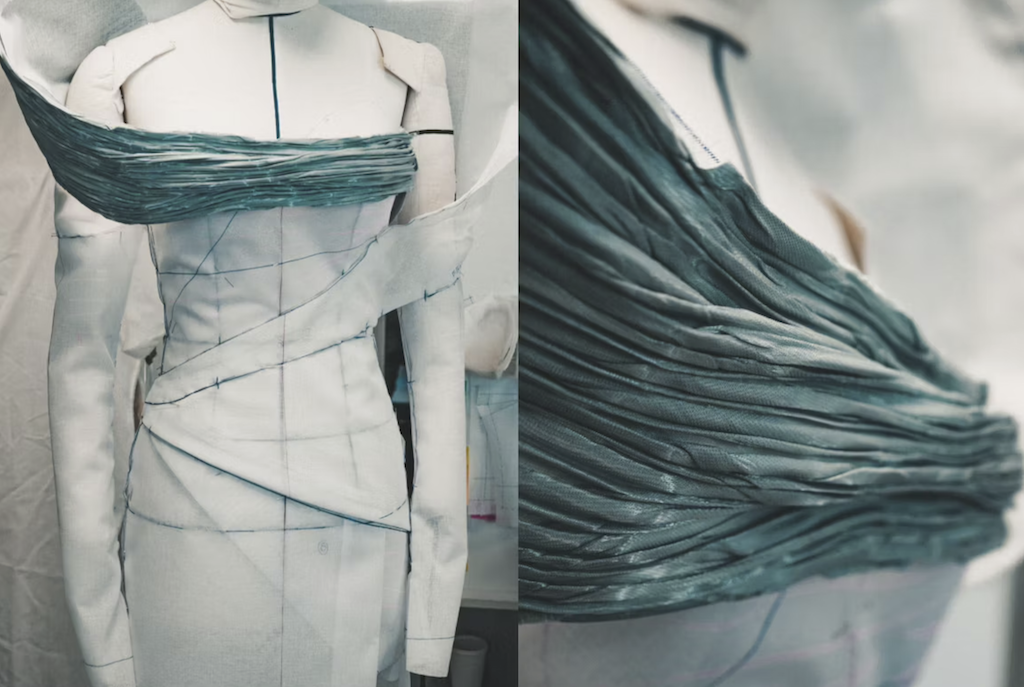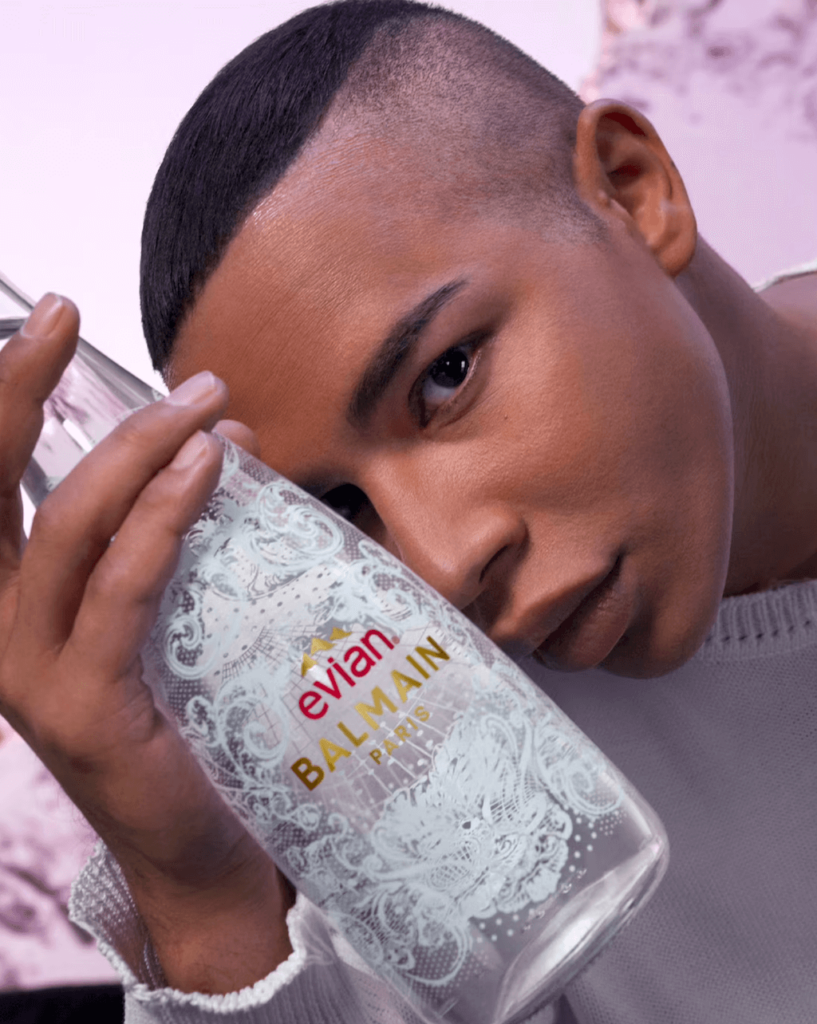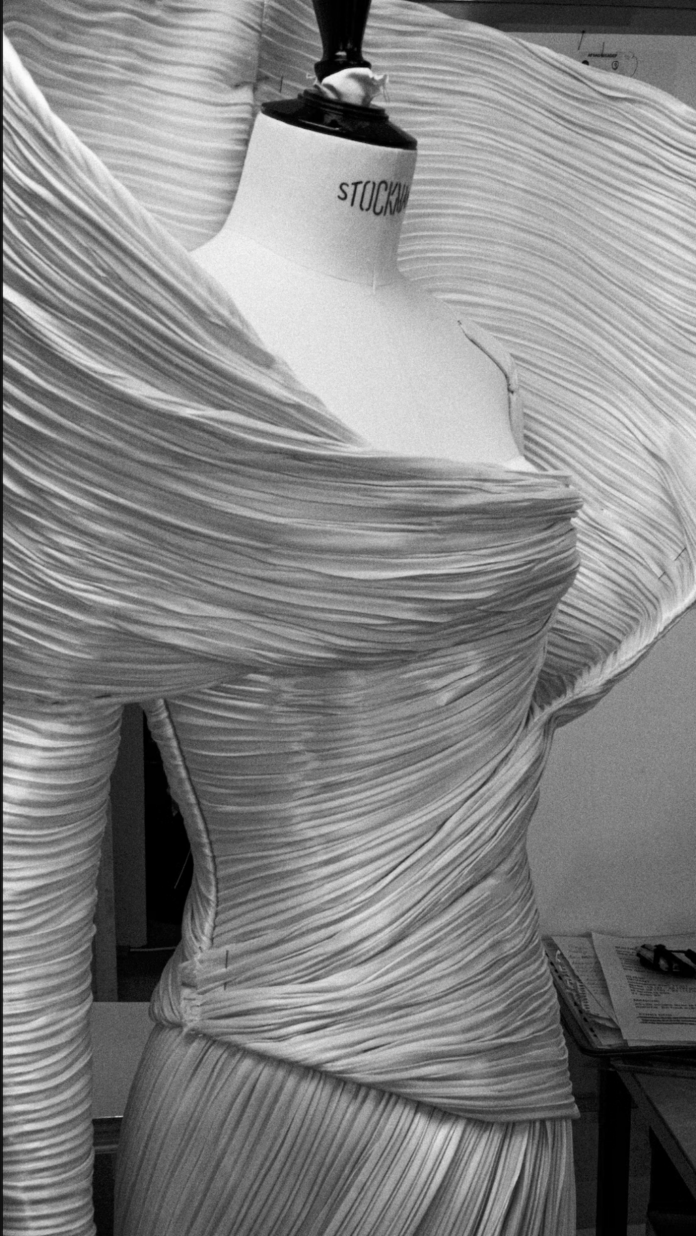French luxury house Balmain and French bottled water brand Evian, have partnered on a new initiative that sees the fashion label turn upcycled Evian water bottles into a dress.
Balmain’s artistic director Olivier Rousteing announced the new partnership with Evian ahead of Paris Fashion Week.
“As we all know, the fashion industry needs to honestly face past shortcomings and finally admit that we can no longer postpone long-delayed changes. That’s why I’ve pushed for inclusive runways that reflect the real beauty of our world and more sustainable materials that respect the need to preserve that incredible beauty,” Rousteing said in a statement.
“And that’s why I am so happy to announce Balmain’s new partnership with Evian, one of France’s most iconic brands,” Rousteing said. “Evian has helped make clear to all of us that an embrace of the values of integrity and beauty can help form the basis of refreshingly honest communications, as well as carbon-neutral, sustainable products.”
Sustainable design at Balmain
The dress is made from a monofilament yarn that comes from the upcycled Evian water bottles. That mono-material yarn means the dress could be recycled back into Evian plastic water bottles at some point in the future.
Rousteing took inspiration from water itself for the dress design, using the design elements of a whirlpool and pleating techniques to impart the shimmer and movement of water. The dress is made from 46 percent recycled plastic, exceeding the GRS4.0 standard requirement of at least 20 percent recycled materials.

The dress will be revealed next week at the Balmain Festival during Paris Fashion Week on September 28.
This is not Balmain’s first sustainable design effort. In 2019, the luxury house partnered with Diamond foundry to bring its carbon-neutral diamond earrings to Paris Fashion Week.
“We are also determined to seek out collaborators who share our core values,” Balmain CEO Massimo Piombini said in a statement. “Knowing that Diamond Foundry can supply exceptional quality, while avoiding any negative environmental or social implications, made it very easy for us to make this decision.”
It’s also incorporated sustainable materials into products like its polo shirt, and in its hair care ingredients. “Balmain Hair Couture acknowledges the importance of sustainable luxury and aims to create luxury hair care products with a minimal ecological footprint,” the company said. It uses highly recyclable packaging, produces in solar-powered facilities, and sources natural, plant-based ingredients for its formulations.
Upcycled bottles
Balmain and Evian want the collaboration to call attention to the environmental impacts of plastic waste—plastic is a leading source of ocean pollution and driving climate change through carbon emissions. Globally, more than 481 billion plastic bottles are used in a single year. But only about nine percent of plastic bottles are properly recycled. Most end up in landfills or in waterways where they’re eaten by marine animals or accumulate in regions known as garbage patches.
“At Evian, we are constantly looking to identify forward-thinking partners who share our values and with whom we can pioneer together to go beyond and discover thought-provoking solutions,” Evian Global Director, Dawid Borowiec, said.

“Building on our strong existing presence in global fashion partnerships, it has been an incredible experience working with Balmain and Olivier Rousteing, celebrating legacy, optimism, and a shared determination to push forward sustainable innovation in the industry.”
The partnership will also see a limited-edition glass 75cl Evian water bottle that features an ice-crystal-like motif and Baroque details Balmain is known for.
“When I walk the avenues of Paris, I am constantly drawn to the examples of Baroque ornamentation set atop this city’s most impressive monuments and structures—and that distinctive beauty is often echoed in my work, Rousteing said. “I cannot think of a better pattern to highlight the precious contents of Evian’s bottles: incomparably beautiful, crystal-clear mineral water.”

Evian recently released a co-branded tennis collection with Rothy’s that was also made from its upcycled water bottles. It has also partnered with Moncler, Alexander Wang, and late Louis Vuitton director and Off-White founder Virgil Abloh, among others.
“Our Evian x Balmain gown is a shining example of something striking and unique that can be achieved at the intersection of innovation, design, and sustainability, which we hope will inspire many,” Borowiec said.


